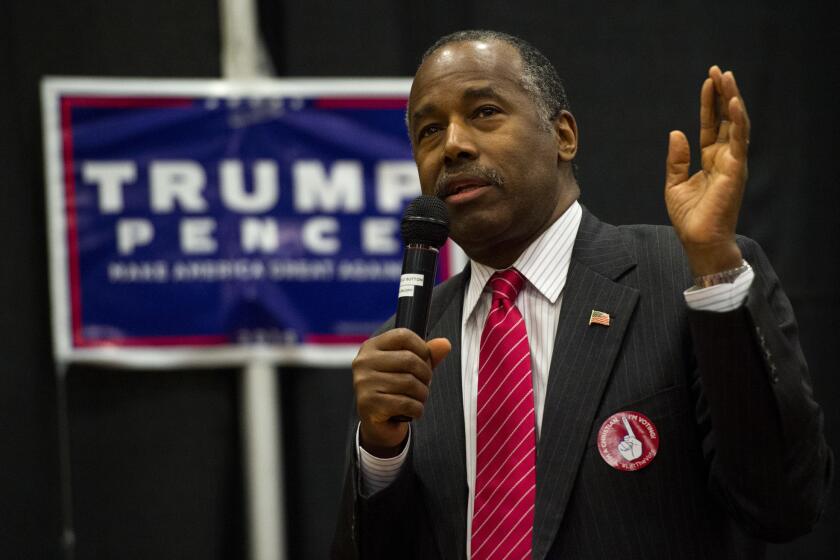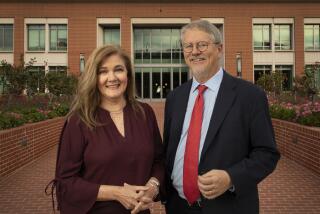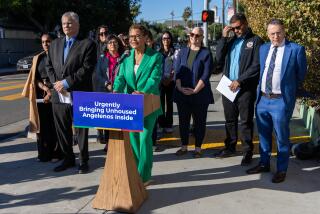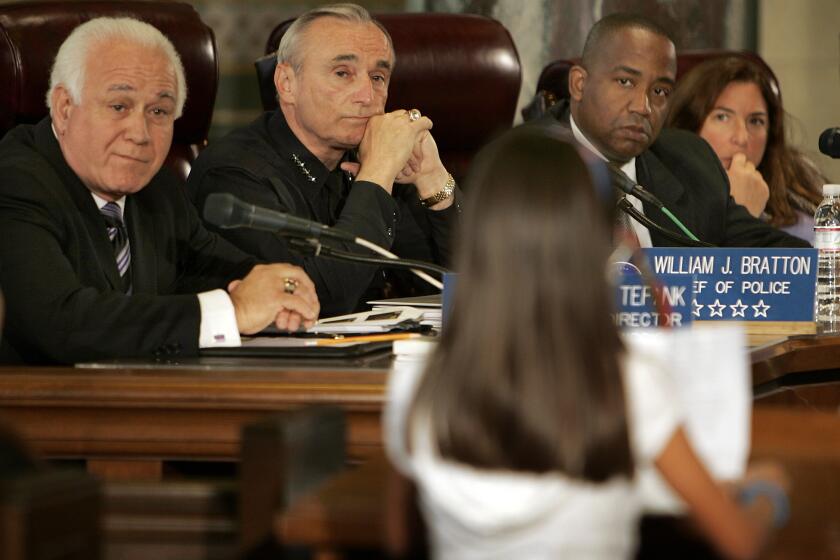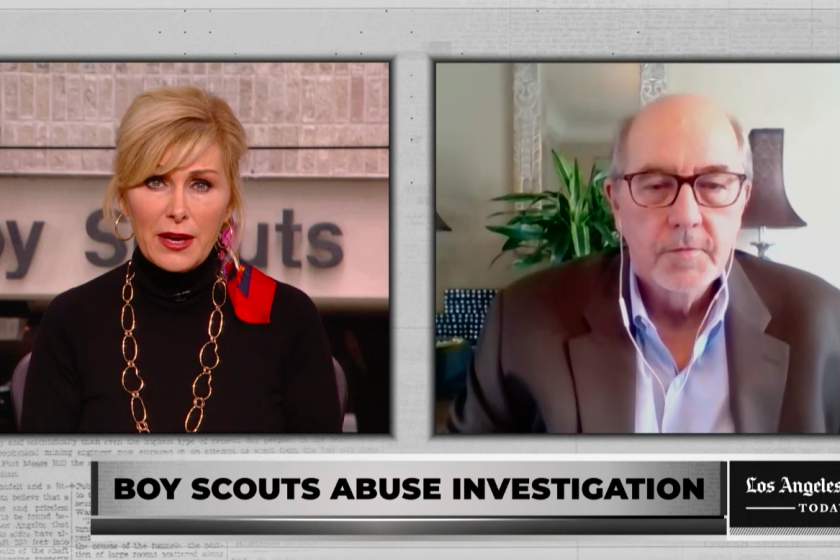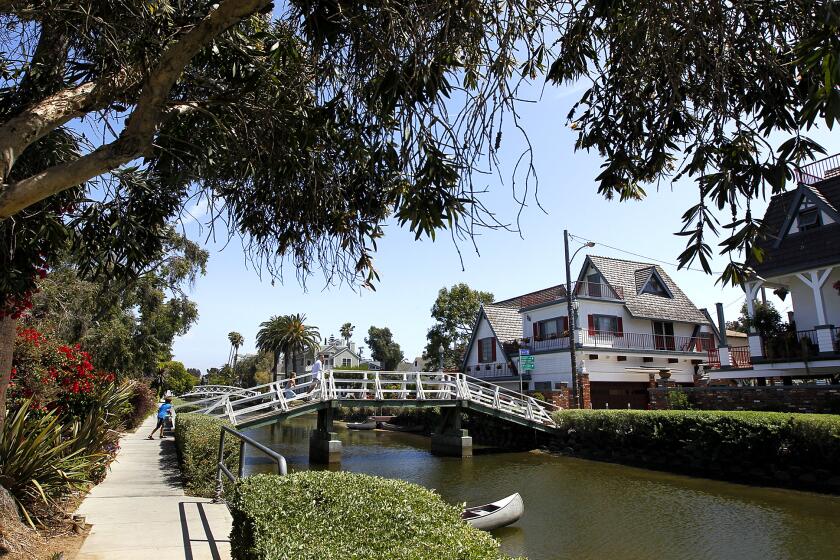Trump officials say they’ll help on homelessness. But only if L.A. meets these conditions
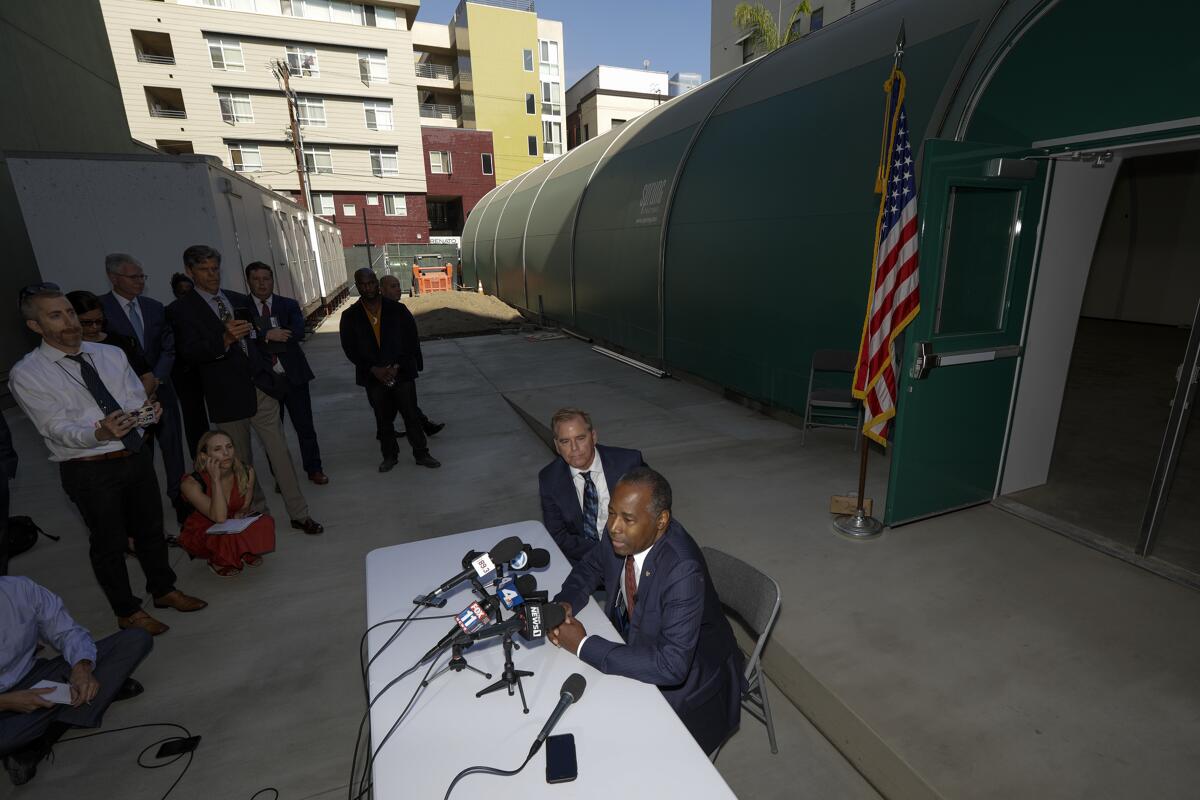
A sweeping proposal by the Trump administration to help Los Angeles’ growing homeless population may come with strings attached, raising questions about whether a deal can be worked out between the city and the White House.
Housing and Urban Development Secretary Ben Carson told Mayor Eric Garcetti in a letter last Thursday that Trump officials are prepared to offer Los Angeles an array of resources, including emergency healthcare services and federal land. The Times obtained the letter through a public records request.
The offer follows recent talks between senior Trump administration officials, Garcetti and Los Angeles County Supervisor Kathryn Barger that have raised advocates’ hopes that federal aid is on its way.
However, Carson also suggested in his letter that the government expects changes from L.A. in how it manages homelessness. “To address this humanitarian crisis in the long term,” he wrote, “the city and county of Los Angeles must partner with our efforts and make necessary policy changes.”
Those changes include “empowering and utilizing local law enforcement” and “reducing housing regulations to expedite affordable housing construction,” Carson wrote.
Carson’s letter is somewhat vague, making it hard to know how significant the aid would be and whether any of the Trump administration’s conditions would be deal-breakers.
Though it’s true that federal funds earmarked for Los Angeles often come with stipulations, some fear that demands to alter policing policies to clear more encampments, for instance, could run afoul of several legal settlements and federal court rulings. It also could anger local leaders.
If L.A. loosens rules around the construction of affordable housing, neighborhood groups or unions also are likely to push back.
It’s far from clear what specific policies the federal government wants the city and county to change, and the Department of Housing and Urban Development declined to comment Monday. “The talks are going well and are continuing,” a spokesperson said, speaking broadly about the relationship.
Barger spokesman Tony Bell said her office doesn’t know what county policies the federal government wants altered. “We’ve had discussions and talked about potential areas that need work, but not specific concrete measures,” he said.
Garcetti’s office declined to answer specific questions about Carson’s letter. “The mayor looks forward to continuing the discussions with federal officials in the coming weeks,” said his spokesman, Alex Comisar.
Housing and Urban Development Secretary Ben Carson told Mayor Eric Garcetti in a letter last Thursday that Trump officials are prepared to offer Los Angeles an array of resources, including emergency healthcare services and federal land.
For months, Carson and others in the Trump administration have promised federal action, including threats of a crackdown on L.A. and San Francisco. In September, federal officials visited Los Angeles to study the homelessness crisis, in which nearly 59,000 people are living in street encampments, vehicles and shelters.
Justice Department officials met with the heads of the unions that represent rank-and-file Los Angeles police officers and county sheriff’s deputies to discuss options to deal with court rulings and legal settlements that have limited the LAPD’s ability to carry out sweeps at encampments.
In a recent Fox News interview, Carson suggested that harsh measures might be needed, saying officials needed to “uncuff law enforcement so that people can be removed now and placed in transitional places.”
In his letter last week to Garcetti, Carson wrote that the federal government is prepared to offer emergency healthcare services, supplemental emergency shelters and transitional housing, federal land, assistance for law enforcement and “voucher utilization support.”
Carson wrote that the “city and county must partner with our efforts” and focus on “reallocating funding and [prioritizing] shelter construction on federal and local land” and “expanding local mental health resources.” He also said the county and city must provide shelters focused on “self-sufficiency programming.”
Diane Yentel, president and chief executiveof the National Low Income Housing Coalition, said such programming typically means that shelters require homeless people to accept services, including drug rehabilitation, as a condition for getting an emergency bed. Such requirements could run counter to the widely accepted “housing first” model of addressing homelessness, which focuses on getting people indoors before addressing other issues, such as addiction or mental health.
Yentel also questioned whether the federal aid would include new housing vouchers, rather than focus on using existing vouchers. “It sounds to me like there’s no money or assistance to help with housing extremely low-income people, which is the core of the [homelessness] problem,” she said.
In an interview last week, Los Angeles County Supervisor Mark Ridley-Thomas praised Barger and Garcetti for trying to work with the Trump administration, but called it “high-risk” because of actions that the government has recently taken, such as seeking to change fair housing standards.
“I just have a hard time understanding, based on history and current practice, how you get something done with the Trump administration,” Ridley-Thomas said.
Gov. Gavin Newsom, during his budget presentation last week, said the state isn’t waiting for a response on requests for help that have been sent to Trump.
“He’s tweeting. We’re doing something,” the governor said. “We have a real plan, real strategies. We’re building on what works. We don’t need him to identify this problem.”
Times Sacramento Bureau Chief John Myers contributed to this report.
More to Read
Start your day right
Sign up for Essential California for news, features and recommendations from the L.A. Times and beyond in your inbox six days a week.
You may occasionally receive promotional content from the Los Angeles Times.
